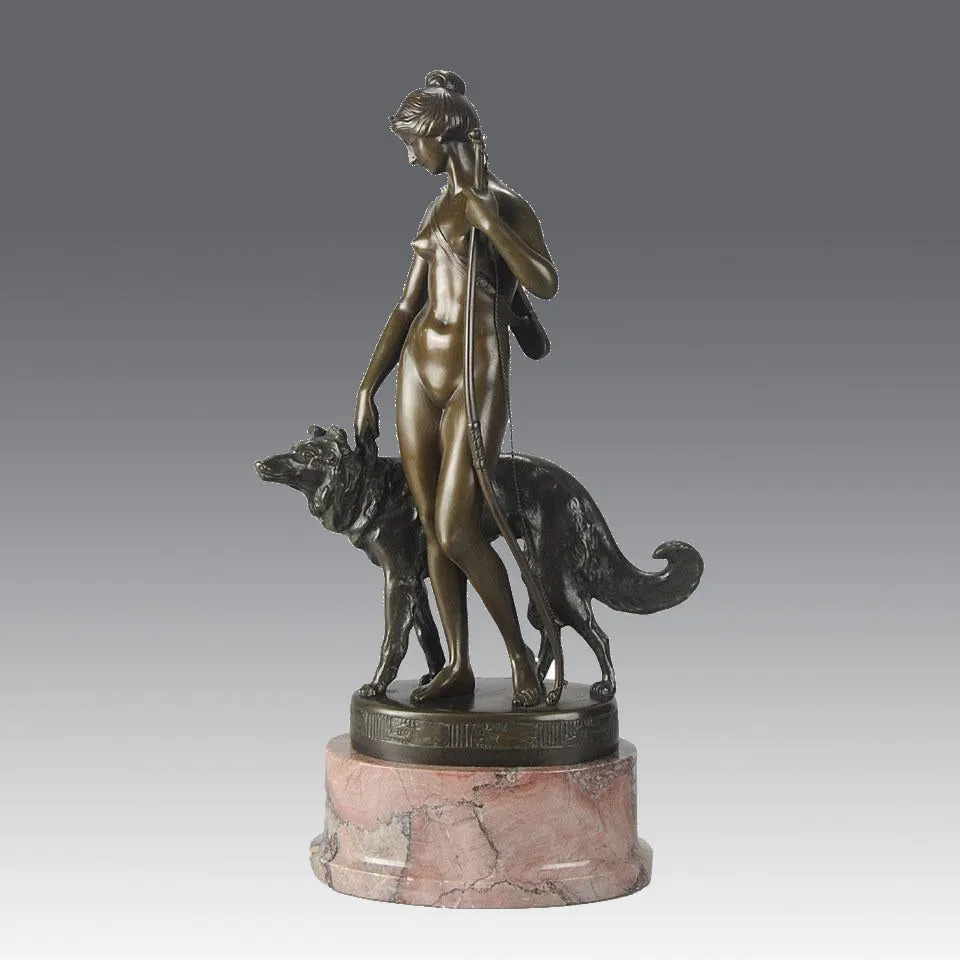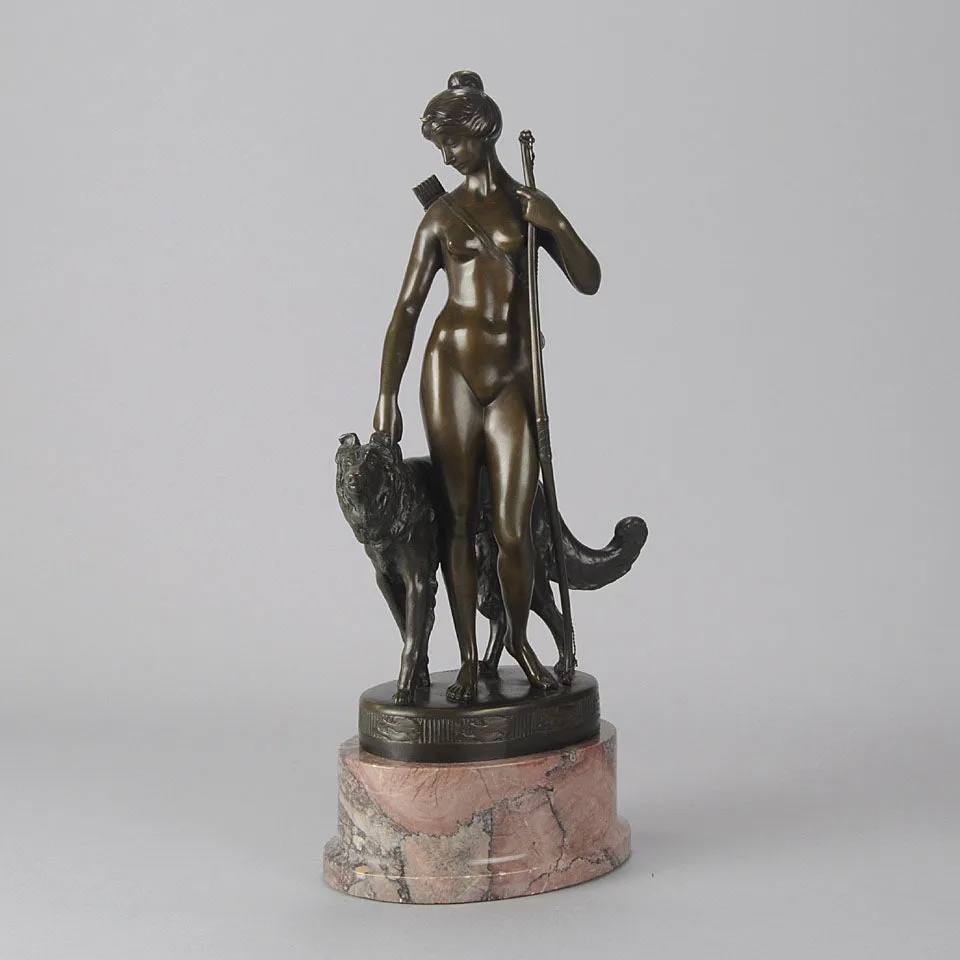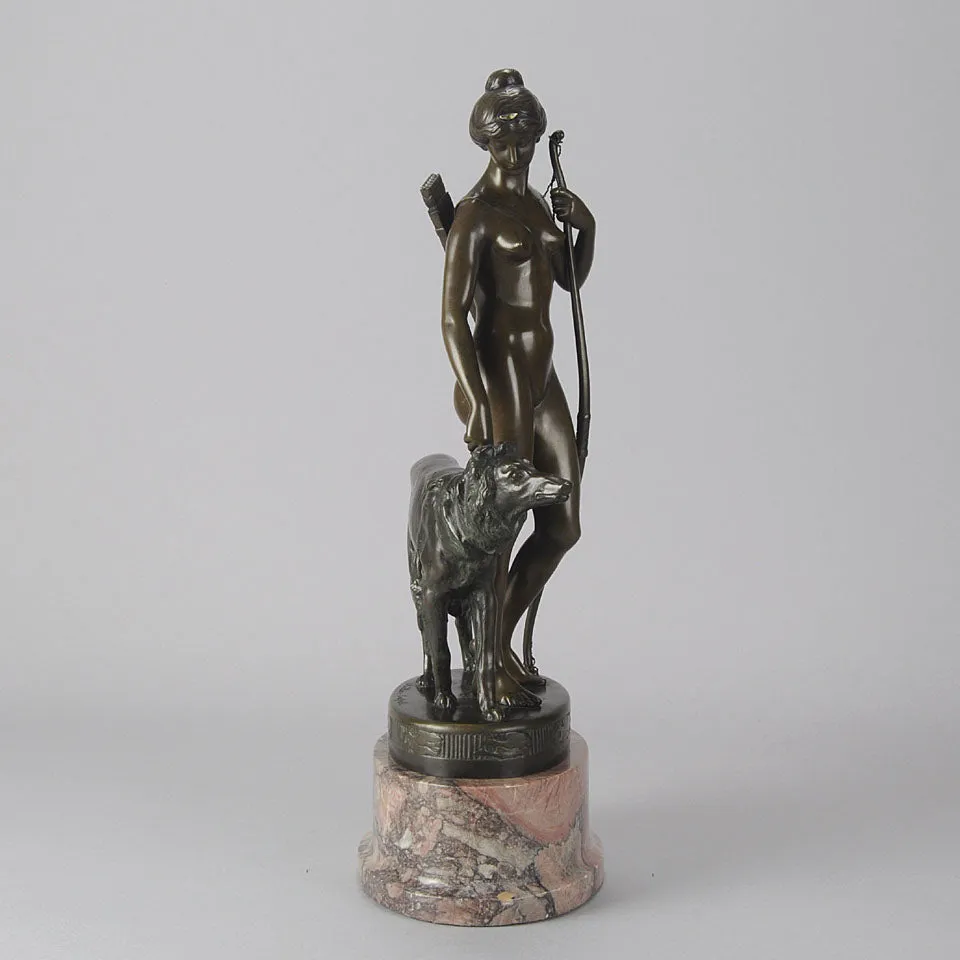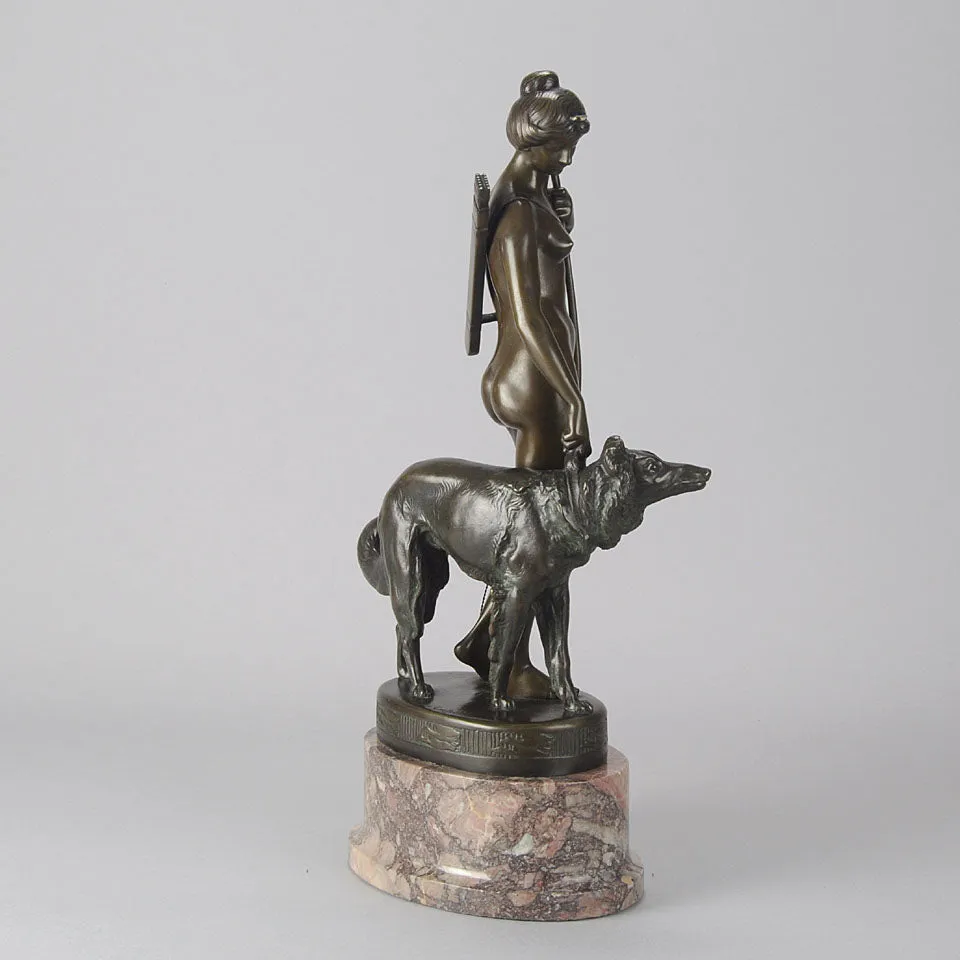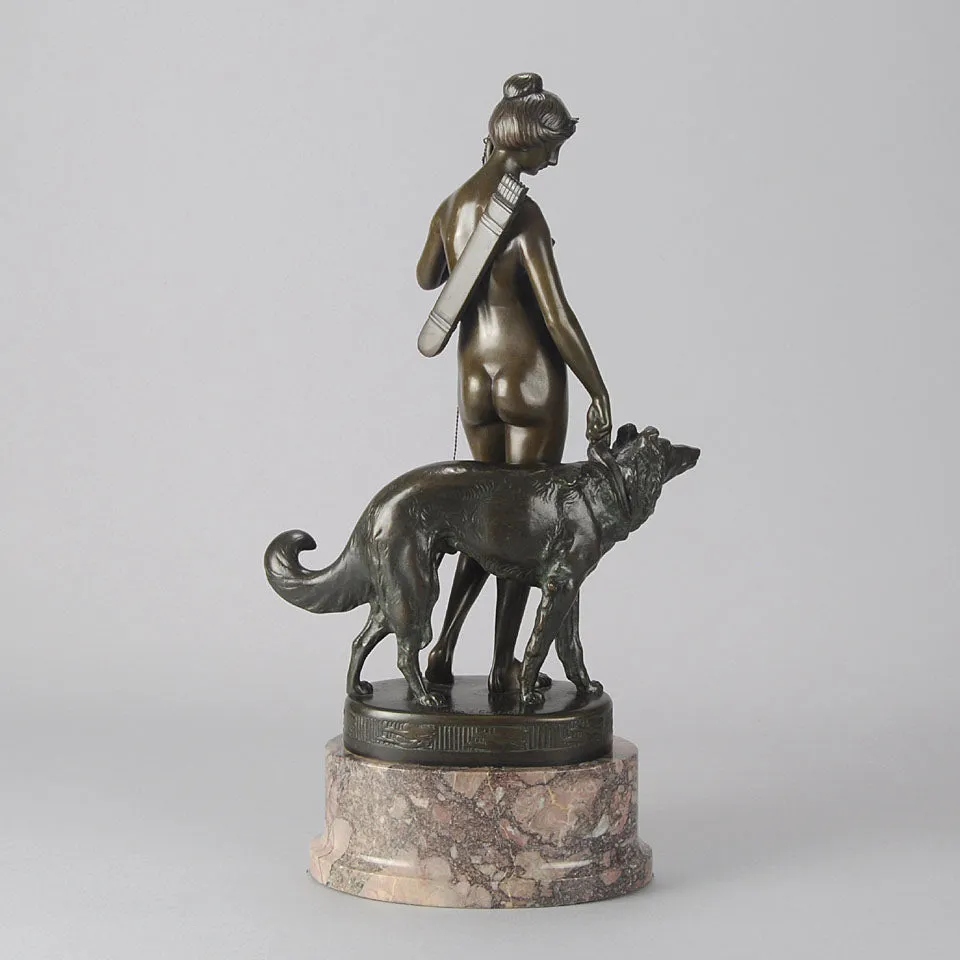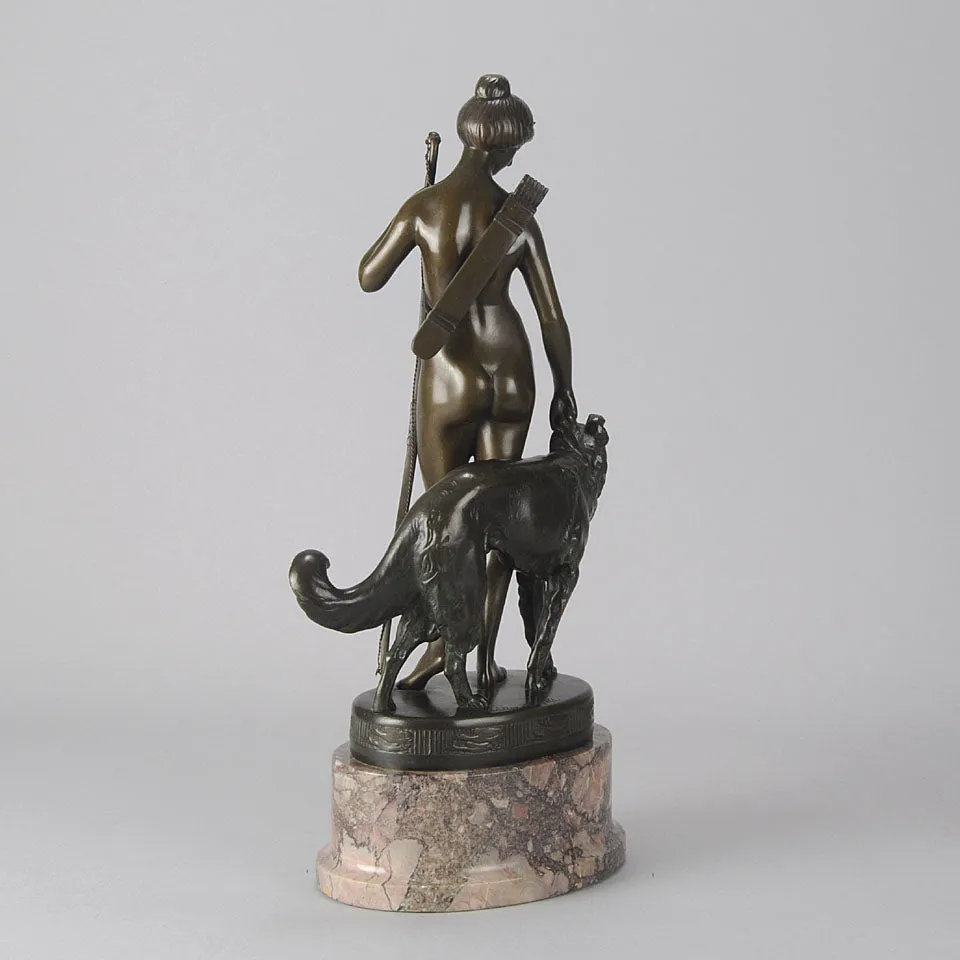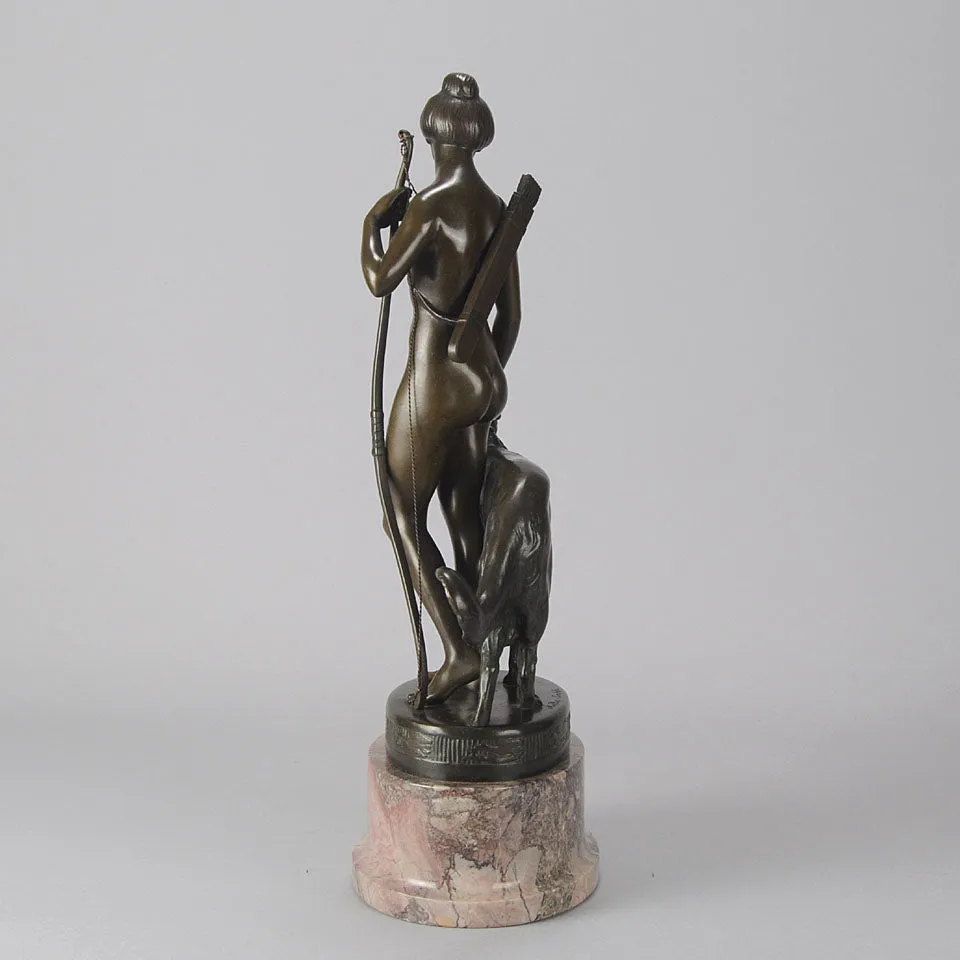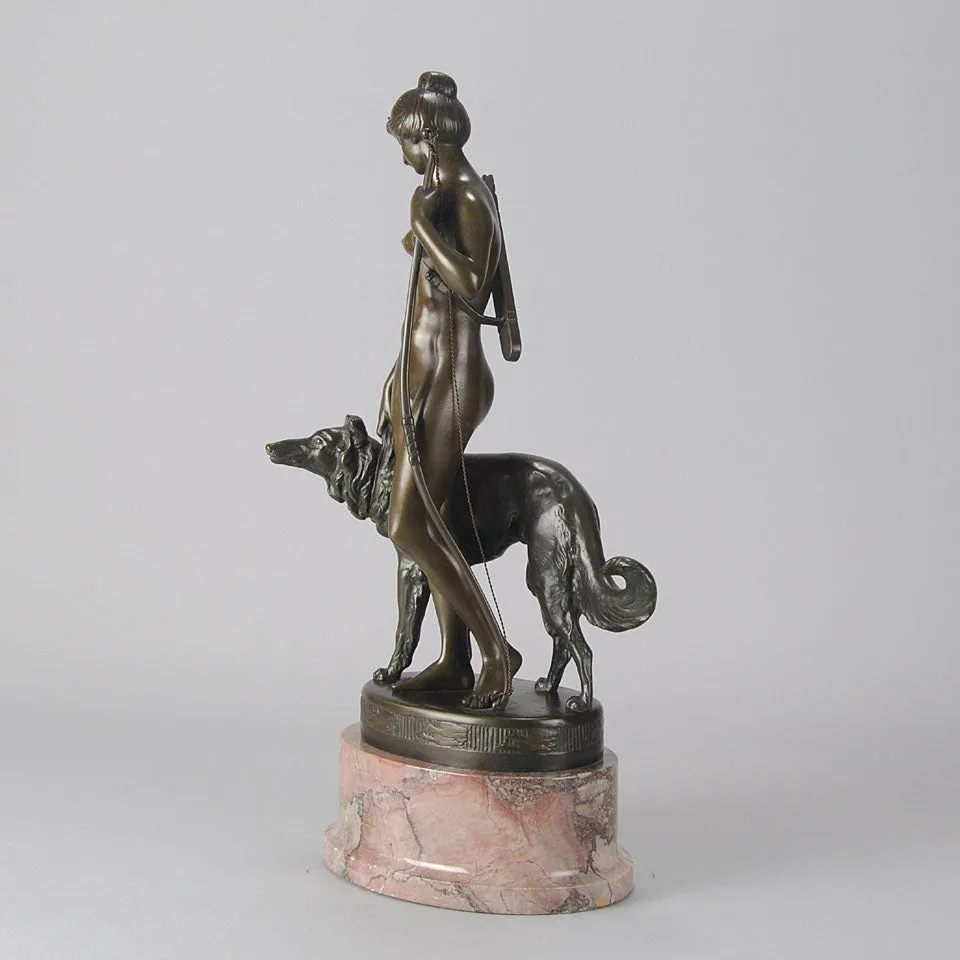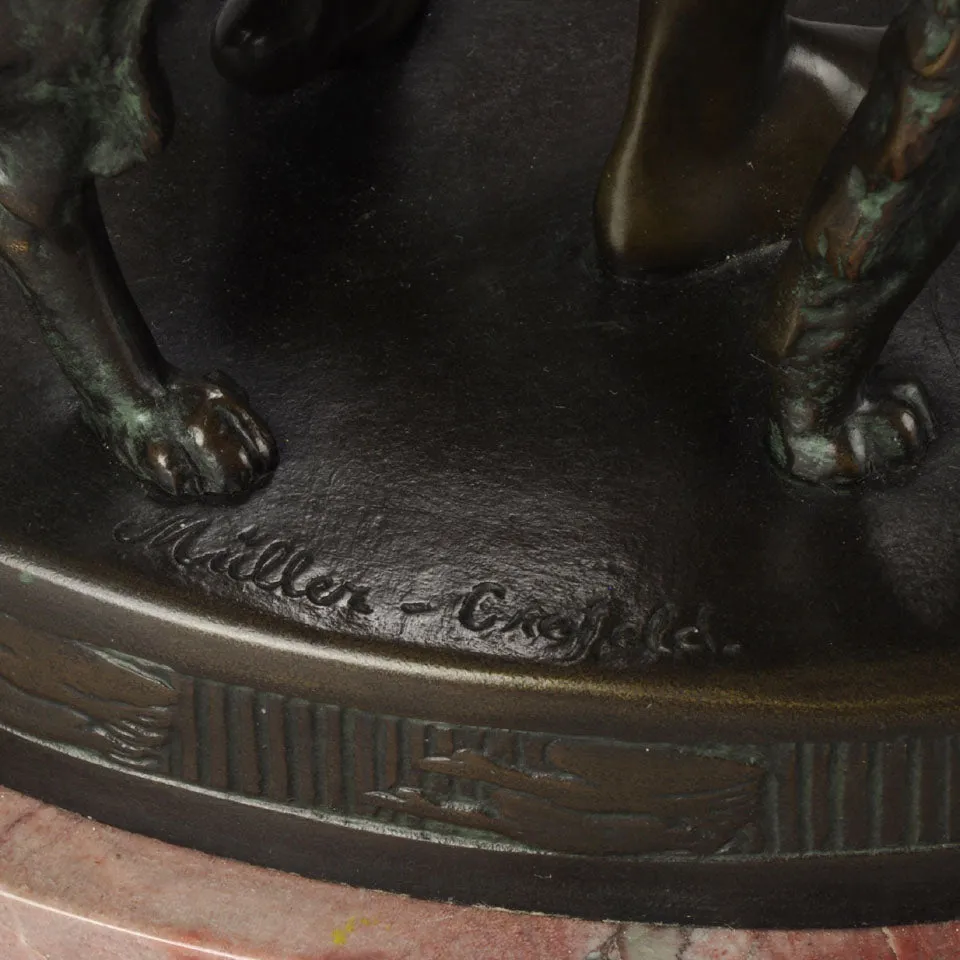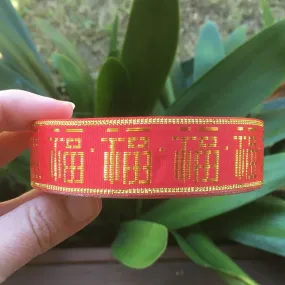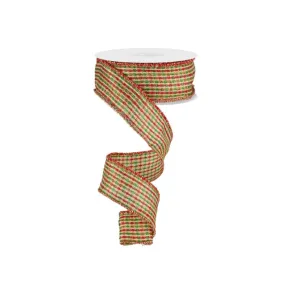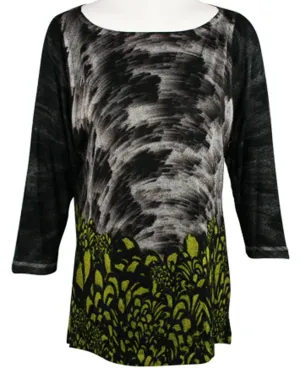ADDITIONAL INFORMATION
Height: 44 cm
Condition: Excellent Original Condition
Circa: 1910
Materials: Bronze & Marble
SKU: 4683
ABOUT
Adolf Muller-Crefeld
Adolf Muller-Crefeld (German, 1863~1934) – An accomplished sculptor working at the turn of the Century. His work was mostly influenced by a historical theme with a contemporary sense of vitality and movement
Diana
For us, hunting tends to be a recreational pastime enjoyed primarily by those who can appreciate a heavy use of camouflage. Well, we’re not the first people to hunt recreationally, nor the first to appreciate it. To the ancient Romans, hunting was both a pastime and a matter of survival; thus, a respect of the natural world was vital. To ensure both of these, the Romans turned to Diana, goddess of the hunt. Although she bore similarities to the Greek goddess Artemis, Diana seems to have been an indigenous Italian deity, perhaps originally a goddess of the woods, but over time she and Artemis blended together. By the height of Roman civilization, she was revered as the goddess of the hunt, as well as of wild animals, the moon, childbirth, children, and she was even associated with fertility. Often portrayed in a short tunic with a bow and arrow and accompanied by a crescent moon, deer, or hunting dogs, Diana was a major player in Roman life.
According to Roman mythology, Diana was the daughter of Jupiterand Latona, and twin of the god of light, Apollo. They were born on Delos and, like most Roman deities, were born as full-grown adults. Diana swore a vow of chastity, making her one of the Roman maiden goddesses famed for their virginity, alongside Minerva and Vesta. Many myths about Diana involve the protection of her virginal status, but perhaps the most famous involves the hunter Actaeon. Actaeon stumbled upon Diana bathing naked and, when the goddess saw him watching her, she turned him into a stag and set his own hunting dogs after him.
Myths like this illustrate the multi-dimensionality of Diana. The Romans and Greeks liked juxtaposing various themes within their gods, but with Diana they really went all out. On one side, she is a celestial being, representing light, virginity, and purity. She remains unattached to the secular world of mortals and is associated with sacred and remote areas like oak groves. However, while being an icon of chastity, she is also a goddess of fertility. Through her role as a fertility goddess and protector of young children, Diana plays a direct role in ensuring human lineages. This makes her one of the more complex deities of ancient Rome, one with a fascinating role as both protector and hunter.




